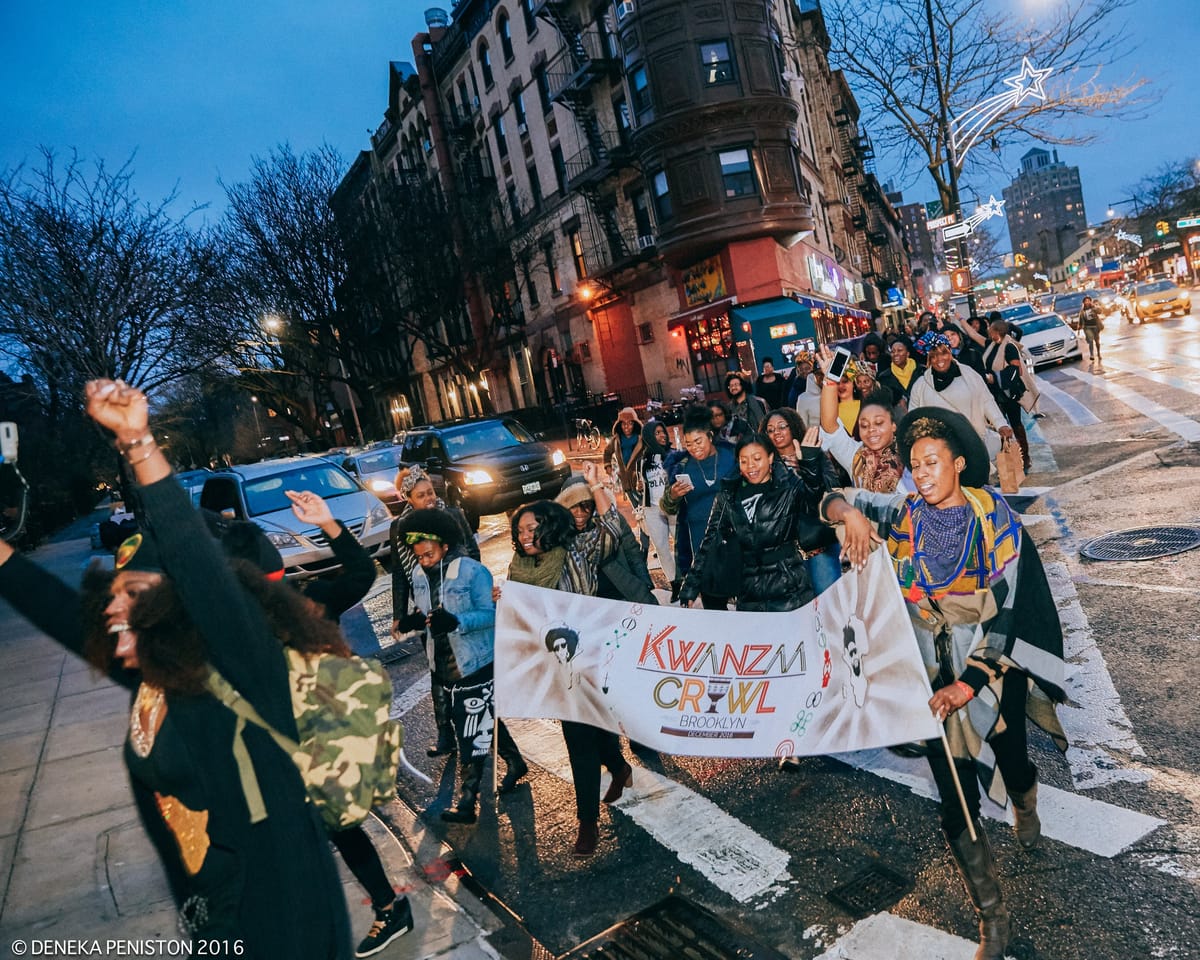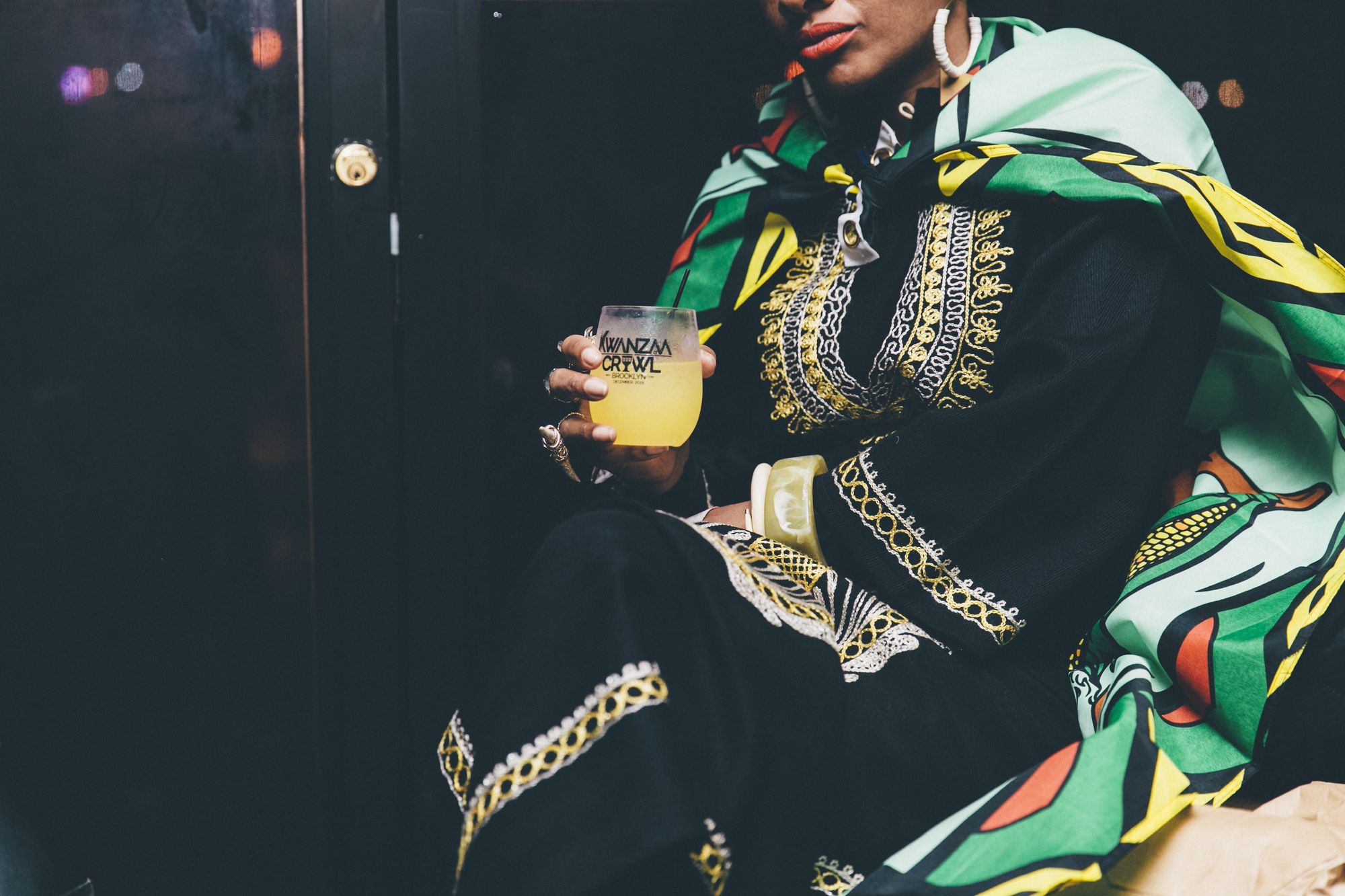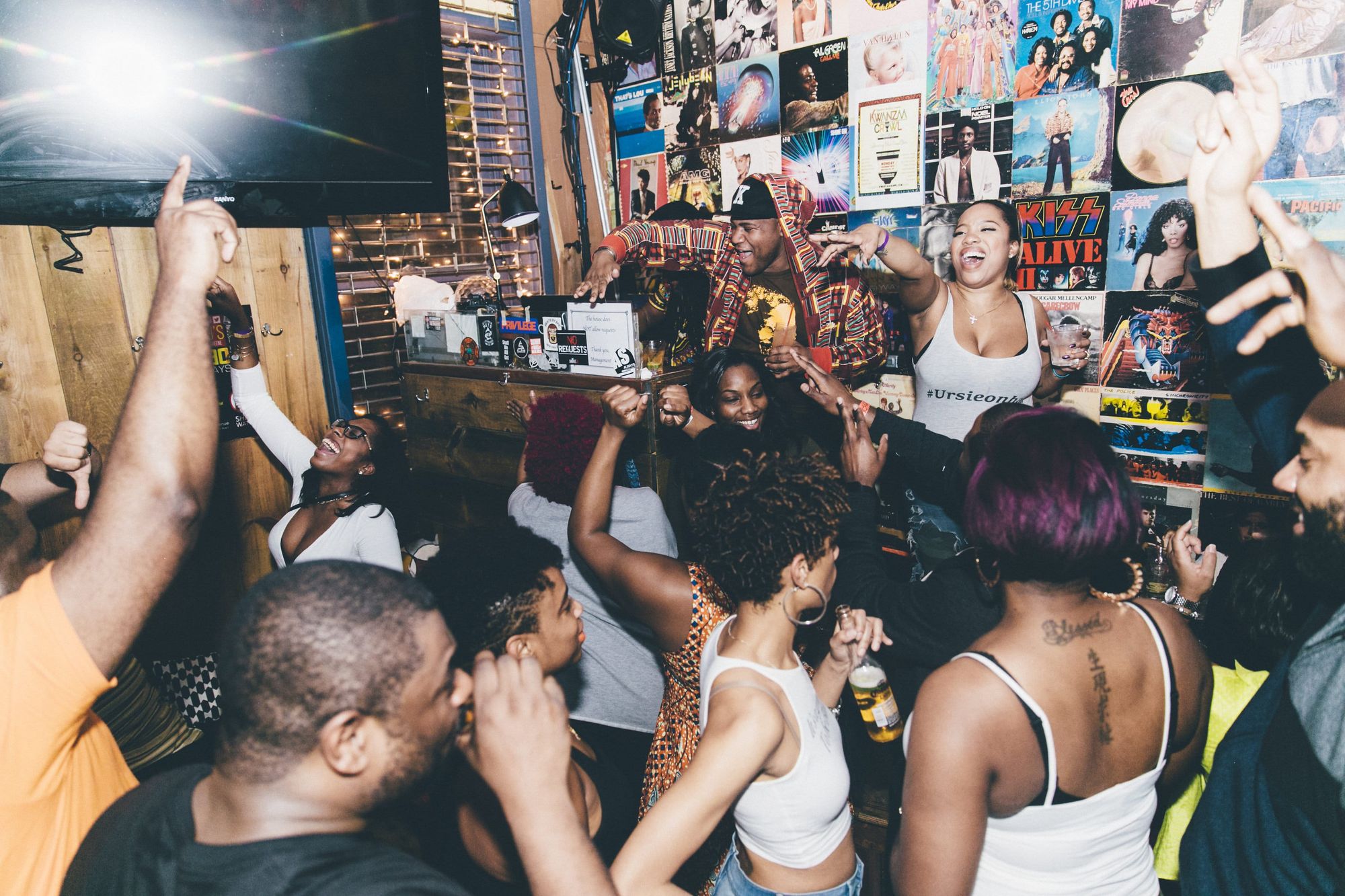Kwanzaa Crawl: Party with a Purpose


Several of Brooklyn’s Black-owned nightspots are preparing for crowds of partiers on the day after Christmas. The revelers will be crawling from bar to bar for drinks and to show off the latest dance steps. But there’s a purpose behind the partying.
With an anticipated crowd of 5,000 participants this year, the fourth Kwanzaa Crawl is purportedly the largest annual bar crawl supporting Black-owned bars and lounges in Brooklyn and Harlem. The event takes place on the first day of Kwanzaa, December 26.
Kwanzaa is a week-long African American celebration of community, culture, and family that runs from December 26 to January 1. Seven principles, rooted in traditional African culture, are at the core of the celebration. They include umoja, which means unity in the Swahili language, and kujichagulia, which means self-determination.
Incorporating the principles are urgently needed, Kwanzaa Crawl founders, sisters Kerry Coddett and Krystal Stark, told Bklyner.
“We wanted to come up with actionable ways for people to really embody these ideas, and the crawl is just one aspect of that,” Stark said.
Kwanzaa Crawl hones in on the fourth principle ujamaa—cooperative economics—for a good reason.

New York City Comptroller Scott M. Stringer released a report in 2017 that found a significant decline in the number of Black-owned businesses between 2007 and 2012, partly due to gentrification. During that same period, Black-owned businesses nationwide grew by 2.4%. New York City, however, was one of only three large cities that saw a decline.
While Kwanzaa Crawl is a one-day event, the sisters want participants to continue supporting Black-owned business throughout the year.
“We tell participants that it’s not just about drinking,” Coddett stated. “We talk about ways toward economic empowerment and supporting Black-owned businesses every day.”
This year, 35 bars and lounges located in Brooklyn and Harlem are participating. Organizing the annual crawls create opportunities for the businesses to support each other. The sisters, who grew up in East Flatbush, held a meeting with all the business owners in one room. At the meeting, the owners discussed forming an association to share best practices and to figure out ways to help one another.
Kwanzaa Crawl has blossomed in a short period. At its launch in 2016, about 1,500 participants crawled to 17 Black-owned businesses in Brooklyn. It expanded to 30 businesses and more than 4,100 crawlers last year when they generated over $250,000 in sales for the bars and lounges. They’re expecting to generate even more money this year.
The duo said they launched the crawl in response to the pain the Black community experienced during the wave of police killings of unarmed Black men and boys.

“We recognized that you can’t have political power without economic power,” Stark underscored.
Each year, the sisters are concerned about how law enforcement would respond to reports of Black partygoers barhopping in groups.
“We go to precincts in the neighborhoods to let them know we’re coming,” Stark explained, adding that “sometimes officers take the day off to crawl with us.”
Organizers will divide the anticipated 5,000 participants into teams led by a tour guide with a music-playing bullhorn. Before they start crawling, teams will gather at one of the five Kick-Off Ceremonies across three different locations.
The Black Lady Theatre in Crown Heights and the Brooklyn Masonic Temple in Clinton Hill will serve as ceremony sites in Brooklyn. The ceremony will consist of lighting the kinara (candleholder), pouring libation to fallen ancestors, and singing the Black National Anthem.
Registration continues through December 23. For those who miss the deadline, late registration is available on December 26. The organizers provide a comprehensive list of frequently asked questions about the Kwanzaa Crawl.




